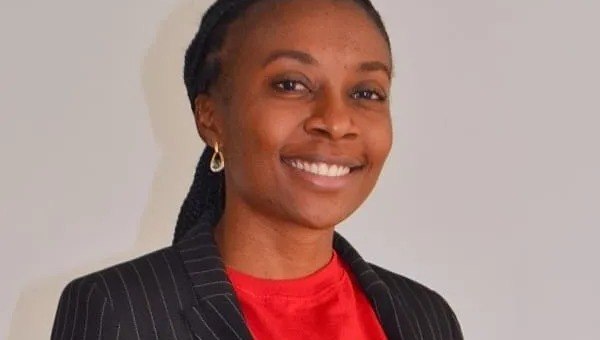Trade Wars: Is It the End of Globalization? JCU Hosts Dr. Doaa Abdel-Motaal
The Guarini Institute for Public Affairs hosted the event “Trade Wars: Is It the End of Globalization” presented by Dr. Doaa Abdel-Motaal on November 26 2018. Dr. Abdel-Motaal is an environment and climate change expert, and author of the book Antarctica: The Battle for the Seventh Continent. Dr. Abdel-Motaal has worked as chief of staff for the Food and Agriculture Association of the United Nations (FAO), and as deputy chief of staff at the World Trade Organization in Geneva, Switzerland.
The lecture began with a presentation by Professor Federigo Argentieri about globalization and the on-going political and economic challenges (such as Brexit and the current “trade wars” among the main economies in the world) that international organizations, like the European Union and the World Trade Organization, have to face.

Dr. Doaa Abdel-Motaal
Following Prof. Argentieri’s introduction, Dr. Doaa Abdel-Motaal discussed the current trade tensions between some of the world’s major powers, like the US, the EU and China, which some commentators have interpreted as being an attempt to rewrite the rules of international trade or even a new international economic order. These new approaches are the result of the rise of a new set of leaders in the main world economies “who want to do things differently,” as Dr. Abdel-Motaal underlined.
For example, during the 2016 presidential election campaign “America First,” US President Donald Trump promised that if elected President he would renegotiate “bad deals “like NAFTA (North American Free Trade Agreement), and he would protect the American economy and jobs. Throughout 2018, the Trump administration implemented a series of tariffs on US imports, including steel and aluminum. These policies were followed by retaliation by the U.S.’s closest allies, the EU, Canada, Mexico, and China. However, all players were clearly still engaging with each other at the World Trade Organization, which remains the main forum for international trade negotiation.
Dr. Abdel-Motaal argued that trade wars can be destructive. In the 1930s, as a response to the Great Depression, the US Congress passed the Smoot-Hawley Tariff Act, raising US tariffs to an all-time high. This was met by immediate retaliation from the US’ trading partners. The end result was a world that was plunged even deeper into the Great Depression.
According to Dr. Abdel-Motaal the best way to resolve trade tensions is to sit around an international negotiation table, especially given how today’s world economy functions. In today’s world, goods are not entirely produced in one country, but rather manufactured and assembled across many economies. Consequently, any tariffs imposed on them would automatically damage the entire value chain. “Globalization was probably unstoppable. The world economy has become extremely integrated,” Dr. Abdel-Motaal argued.
Following Dr. Abdel-Motaal’s presentation, the floor was open for the Q&A Session. The topics included the consequences of the disempowerment of the middle class, the continued survival of the European Union, the switch from a unipolar to a multipolar order, and the contextualization of the Belt-Road Initiative (a development strategy adopted by the Chinese government involving infrastructure development and investments in countries in Europe, Asia and Africa). As for the disempowerment of the middle class, the speaker sustained that “…it could only be solved through the creation of stronger social safety nets.”
In response to questions on the European Union, Dr. Abdel-Motaal observed that many were distinguishing between the economic and the political union, in discussing the benefits of EU membership. The extent to which Brexit would impact the economic union remains to be seen. As far as the Belt-Road Initiative was concerned, she explained that it is viewed as an opportunity for several African States to increase investments and infrastructure.
As for the last and conclusive question, concerning the switch to the multipolar order, she argued that it was obvious beyond a doubt that there were many new and important players on the international economic scene. But what the outcome of the rebalancing of the current economic order will lead to, remains to be seen.
(Clelia Casciola and Leonardo Rivalenti)





